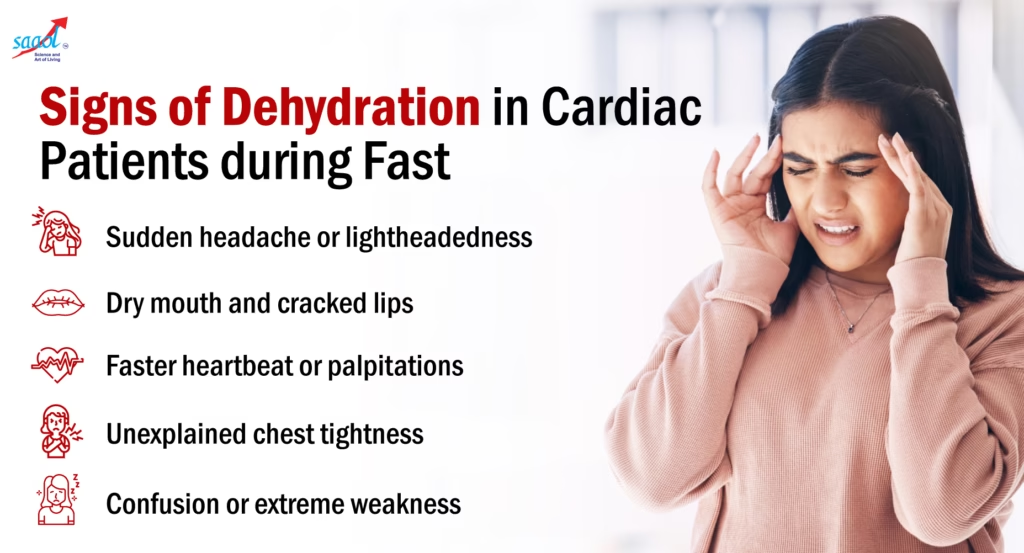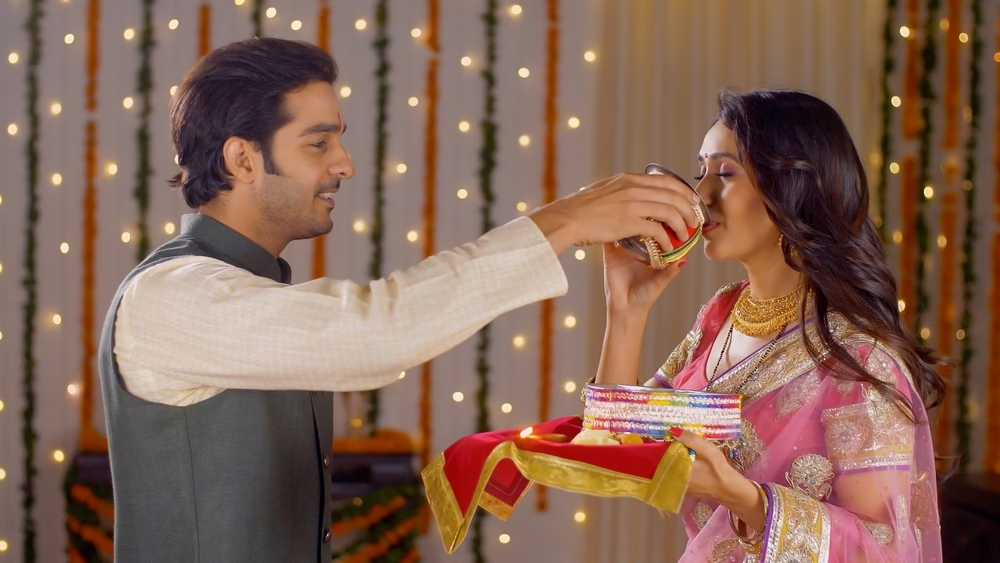Do you know that keeping a long fast like Karwa Chauth without water can exert further pressure on your heart?
Many heart patients face this exact worry. The main problem is not just staying without food, but the dehydration risk for heart disease during Karwa Chauth. Thereafter, when you do not consume water throughout the day, your heart must pump more vigorously. This can be even more risky if you have existing high blood pressure, heart blockage, or ongoing EECP treatment.
The majority of people believe, “If everybody else can fast, so can I.” But for heart patients, just one day of dehydration can be problematic.
In this blog, we will demystify why dehydration is so dangerous and how to spot symptoms you should never ignore, as well as provide tips on fasting safely if medically appropriate.
Table of Contents
ToggleWhat is the Dehydration Risk for Heart Disease during Karwa Chauth?
When you don’t drink water for a prolonged time, your blood thickens, your blood pressure drops, and your heart works harder to push the thicker blood through. For heart patients, this can cause chest pain, an irregular heartbeat, or worse symptoms, such as hospitalization.
Why is Karwa Chauth fasting different?
- It involves no water and no food from sunrise to moonrise.
- For healthy people, it may be manageable.
- For heart patients, especially those with stents, bypass, or EECP treatment, this is risky.
Expert Note – Dr. Vishal Sharma (COO, Sr Heart specialist, SAAOL Heartcare).
“Fasting without water puts double pressure on the heart. Patients with previous heart disease should only fast after medical advice.”
How Fasting Affects Heart Patients via Dehydration
Fasting without water reduces blood volume, makes circulation harder, and increases heart strain.
Role of hydration in heart health
- Keeps blood thin and flowing smoothly.
- Maintains blood pressure balance.
- Prevents clot formation in narrow arteries.
When dehydrated:
- Heart rate goes up.
- BP becomes unstable.
- Angina or a heart attack becomes more likely.
The American Heart Association says that very mild dehydration (losing about 1-2% of your body weight) can reduce cardiovascular function.
Signs of Dehydration in Cardiac Patients during Fast

Look out for unexplained fatigue, dizziness, or chest pain while fasting.
Common signs:
- Sudden headache or lightheadedness.
- Dry mouth and cracked lips.
- Faster heartbeat or palpitations.
- Unexplained chest tightness.
- Confusion or extreme weakness.
Author’s Note:
Once, my aunt, who lost consciousness on a Karwa Chauth day, refused to drink water and skipped her medicines. She was ultimately found to have heart disease, which is why this issue is so personal to me.
How to Prevent Dehydration in Heart Patients on Karwa Chauth
Prepare well before sunrise, and after moonrise, rehydrate slowly and wisely.
Step-by-step precautions:
Pre-dawn meal (Sargi):
- Slowly drink 2–3 glasses of water.
- Do not have excessive tea/coffee, as it leads to dehydration quickly.
- Hydrate with fruits like papaya, watermelon, or cucumber.
During fast:
- Stay indoors, avoid sun exposure.
- Get more rest, no heavy workouts.
- Do not skip medications you’ve been prescribed (check with your physician about which ones can be taken).
Breaking the fast:
- First and most importantly, drink a glass of water, not cold.
- Drink lemon water or buttermilk to get electrolytes back in your system.
- Avoid oily, spicy food immediately.
Expert Note – Garima, Head of Nutrition at SAAOL Heartcare:
“Most women break their Karwa Chauth fast with heavy fried food, which is very harmful for heart patients. Start with light eating and water, break the fast gradually.”
Dehydration Precautions for Heart Disease during Religious Fasts
Talk to your doctor first. Some patients should not fast at all.
Who should avoid fasting altogether?
- Patients with a recent heart attack (within 6 months).
- Those on diuretics (water pills).
- Patients with uncontrolled hypertension or uncontrolled diabetes mellitus.
- Elderly patients above 70.
Safer alternatives to complete fasting:
- Keep fruit fasts (water + fruits at intervals).
- Perform symbolic fasts (eat light food, keep discipline).
- Focus on prayers and rituals without harming health.
Scientific Evidence & Studies
Dehydration can cause blood to thicken and raise the risk of a clot in patients with Heart blockage, according to the National Institute of Health (NIH)
Step-by-step Checklist to Keep the Heart Safe during Karwa Chauth:
- Drink water-rich smoothies at pre-dawn.
- Don’t eat salty snacks before a fast (they make you thirsty).
- Remain in air-conditioned rooms, reduce outdoor activity.
- Fast breaks should consist of water and fruits; meals should be light, not heavy.
- Check BP and sugar before and after fasting.
- Carry emergency medicines
- If you suddenly feel chest pain or dizziness, end the fast immediately.
Conclusion
Karwa Chauth is a festival of love and giving, but health should always be both partners’ priority. There is an actual, serious dehydration risk for heart disease during Karwa Chauth. If you have heart disease, ask your physician before fasting. Occasionally, symbolic fasting or spiritual discipline is safer than seeking to put your heart at risk.
FAQs
- Can heart patients safely fast on Karwa Chauth?
Only if your doctor allows, and only with proper precautions. Many patients are advised to avoid it.
- What are the first signs of dehydration in heart patients?
Dizziness, chest tightness, fast heartbeat, and extreme weakness.
- What should heart patients eat for Sargi?
Fruits, light chapati with sabzi, and at least 2 glasses of water. Avoid oily food.
- Is breaking the fast with sweets safe?
Not for heart patients. Better to start with water, fruit, and light snacks.
- What is a safe alternative to the Karwa Chauth fast?
Fruit-based fasts, light meals, or symbolic fasts focusing on rituals instead of long dehydration.
If you are a heart patient, or your loved one is, and may like expert advice on this Karwa Chauth, visit your nearest Saaol Heartcare Centre for a direct consultation from our heart specialists. Your health is the greatest gift to your family.


